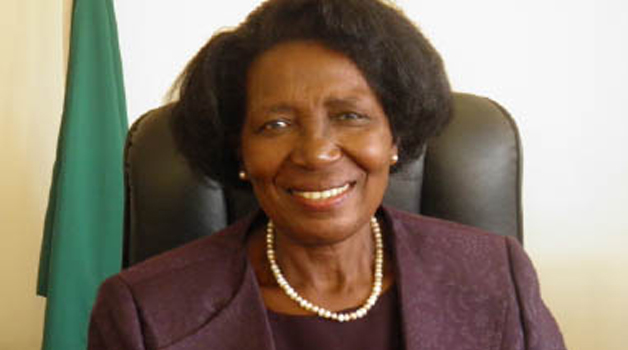By CHILA NAMAIKO –
PARLIAMENT has heard that Timor Consulting, an Israeli-based company, is not registered in Zambia and has no relationship with the Electoral Commission of Zambia (ECZ) and the ruling Patriotic Front (PF).
 Vice-President Inonge Wina told the House that contrary to claims by The Post newspaper that Timor Consulting was contracted by the PF to help rig the August 11 general elections, the firm had no presence in Zambia.
Vice-President Inonge Wina told the House that contrary to claims by The Post newspaper that Timor Consulting was contracted by the PF to help rig the August 11 general elections, the firm had no presence in Zambia.
Ms Wina said the company was not even known and registered under the Patents and Companies Registration Agency and that it was unreasonable for some media organisations to accuse the PF of having contracted the firm to provide consultancy services.
“Mr Speaker, Government has no contract with Timor Consulting. I know not about this company and in fact, PF doesn’t even need this company to win the August elections, we shall win on our own,” she said.
She was responding to PF Chongwe Member of Parliament Sylvia Masebo during questions for oral answer who wanted to know, among other matters, whether Timor Consulting was registered in Zambia.
Ms Wina said the company had no role to play during the forthcoming elections and urged Zambians to dismiss reports of the firm being established in the country.
Meanwhile, Zambia is poised to record significant growth this year owing to the measures that the Government is implementing to increase the resilience of the economy to both domestic and external shocks, Finance Minister Alexander Chikwanda has said.
Mr Chikwanda said real Gross Domestic Product (GDP) growth this year was estimated at around 3.7 per cent, better than the 3.5 per cent registered last year as indicated in preliminary estimates.
“In 2016, the economy is expected to grow at around 3.7 per cent against the Budget projection of around seven per cent. The Government has taken stock of the economic challenges that we have faced as a country in 2015 as well as in 2016.
“In this regard, Government has this year taken measures to increase the resilience of the economy to both external and domestic shocks,” Mr Chikwanda said.
He said this in Parliament yesterday when he presented a ministerial statement on the state of the country’s economy.
Mr Chikwanda said efforts had been stepped up to enhance agricultural diversification programmes while the mineral royalty regime had been redesigned to cushion the mining sector.
“Government will also continue rolling out economic infrastructure, particularly in the transport and energy sectors to underpin growth and employment creation this year and beyond,” the minister said.
He said in the medium-term growth Zambia was set to improve to an average five per cent due to Government’s resolve to continue implementing policies that would consolidate economic diversification.
Mr Chikwanda said the implementation of the 2015 National Budget was faced with challenges due to shortfalls in revenue collection, as the Government only collected K34.1 billion in revenues and grants last year against a target of K35.4 billion.
“Due to the mismatch in revenues and expenditures, the fiscal deficit in 2015 was 8.1 per cent of GDP, higher than the revised projection of 6.9 per cent of GDP in June 2015,” he said.
Mr Chikwanda said the country’s external debt as at the end of last year was US$6.4 billion, representing 38.7 per cent of GDP and lower than the internationally accepted threshold of 40 per cent.
He said inflation at the close of 2015 was at 21.1 per cent due to the sharp depreciation of the Kwacha, but the rate was expected to drop to 15 per cent at the close of this year and to single digit levels in the medium-term.
“Government will continue to ensure stability of the exchange rate by using appropriate fiscal and monetary instruments while maintaining a fine balance between the use of these instruments and growth objectives,” he said.
Meanwhile, the House heard that Zesco had successfully negotiated Power Purchase Agreements (PPAs) with various Independent Power Producers (IPPs) and utilities to mitigate the 1,000 Megawatts (MW) power deficit.
Energy Minister Dora Siliya said the utilities included ESKOM of South Africa, EDM of Mozambique, Aggreko of Scotland and Karpowership of Turkey.






